Chris Ferrie is smarter than us and that’s ok. It’s his books that we like and if you have a newborn through twelve years old they are books that need to be on their radar. Quantum Physics for Babies is light reading. It’s a board book that presents concepts that many adults, including myself, would have zero chance of understanding if Ferrie were to take the material and explain it to me as an adult. My First 100 Space Words takes the same faith that babies are able to learn things the more that they’re around it and apply it to space.
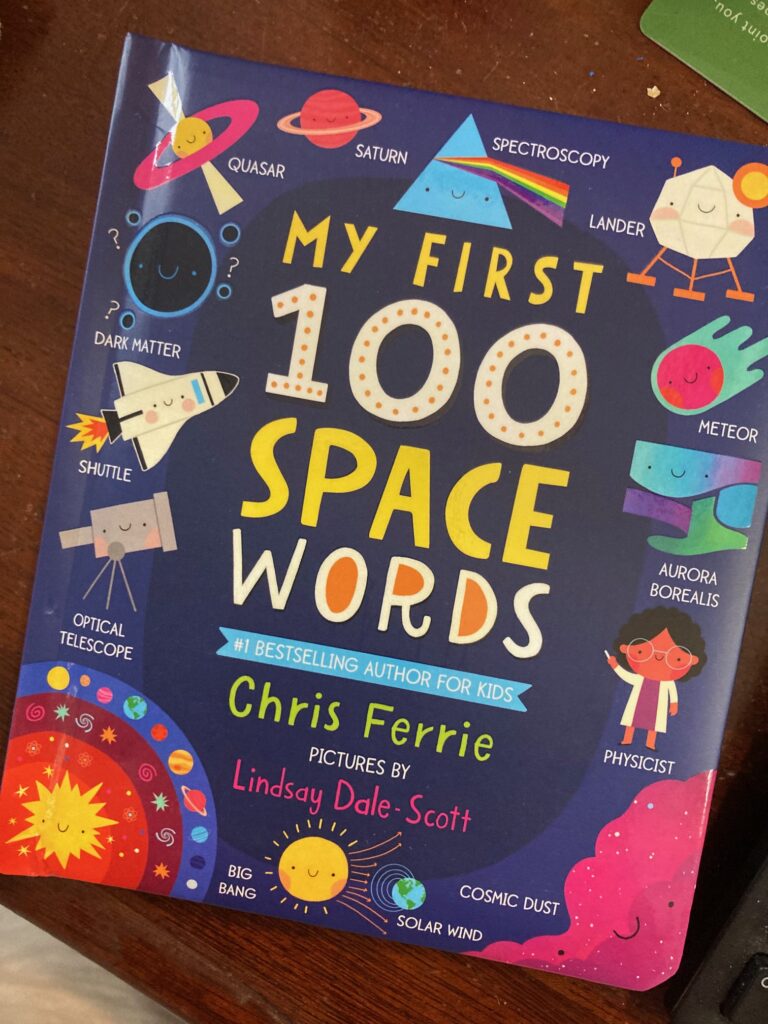
Crawler kids will easily be able to pick up the book and treat it like any A, B, C, or counting book that’s in their library. However, those older kids will be able to pick up the book, check their knowledge and ask themselves questions. It presents basic words and space concepts, as well as, ideas or definitions that older readers or even adults won’t know.
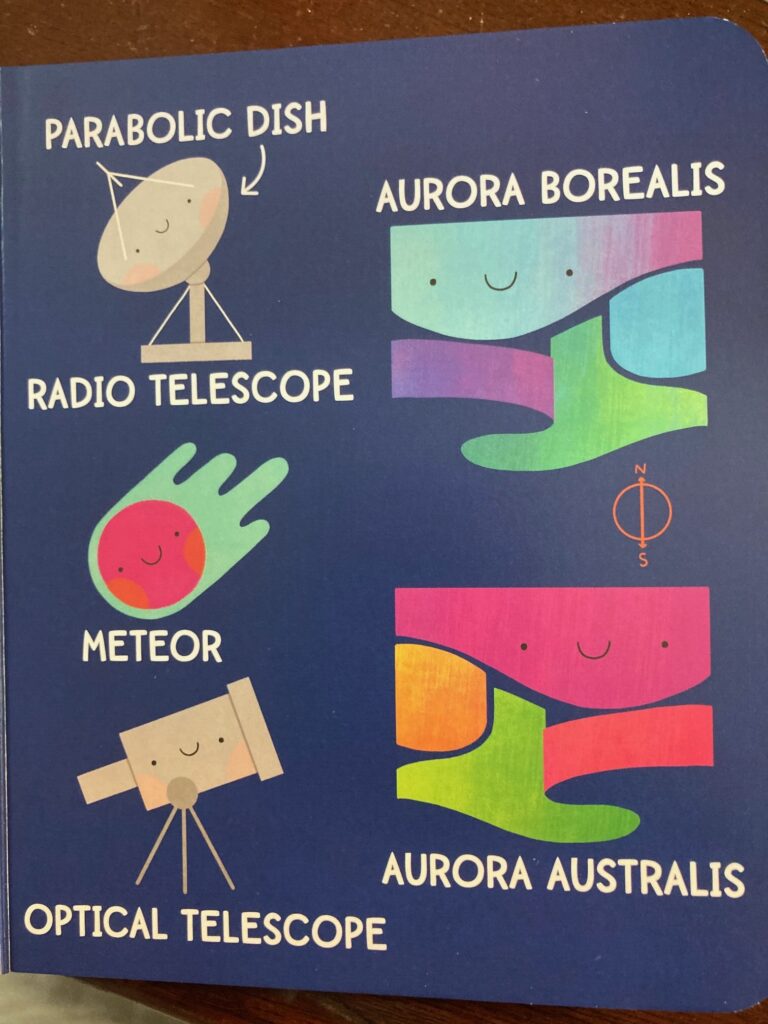
The amazing thing about My First 100 Space Words is how wide its appeal is. For example, the space station has a smiley face on it, as does the satellite, shuttle, solar sail, sun, and cosmic microwave background. Raise your hand if you know what a cosmic microwave background is. Keep them raised if you know what a quasar, pulsar, supercluster, binary stary, or Alpha Centauri is. If you said that the answer to that last word was a character in The Last Starfighter you do not receive credit.
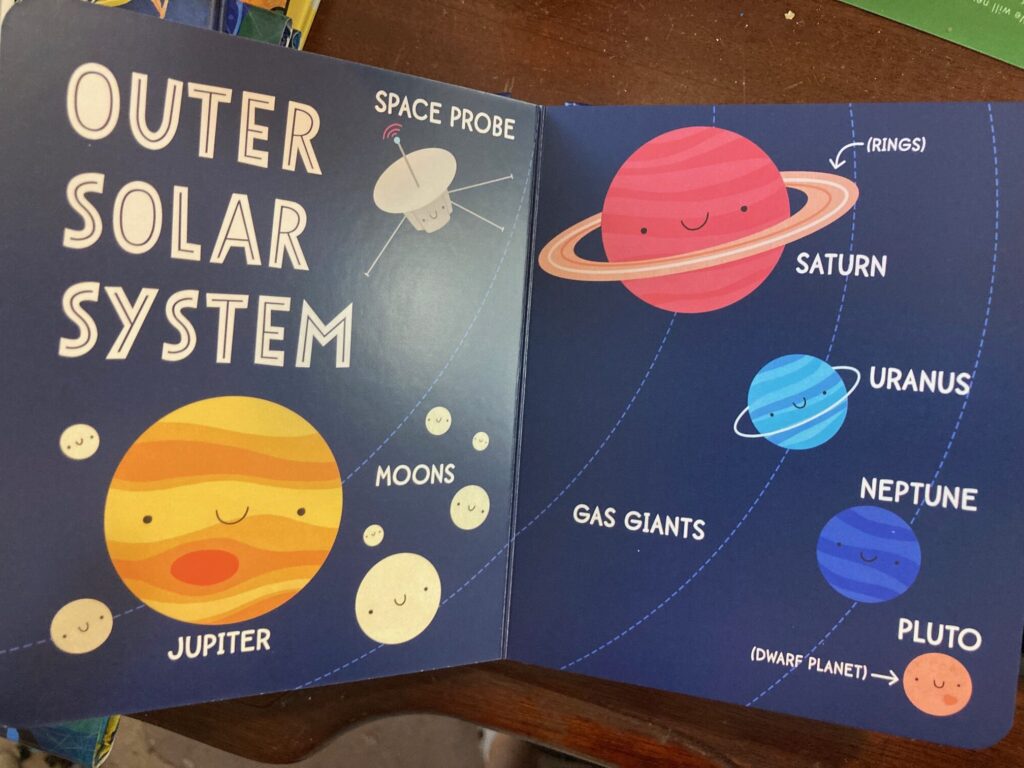
The illustrations in the book are happy, soft, and have rounded edges to most things. They make crawlers through early elementary students warm up to the idea of looking at the book. The content in My First 100 Space Words allows those older kids to look at the book and ask questions.
As a teacher, I love it when kids ask relevant questions that I don’t know the answer to. When that happens I’ll have them write the question down and research it at home. Life is not a courtroom where we should only ask the questions that we know the answers to. My First 100 Word is a series by Ferrie that dabbles in math, art, construction, animals, nature, science, and more. Each book is printed on its own so that those younger children who might be inclined to that area can jump into the pool.
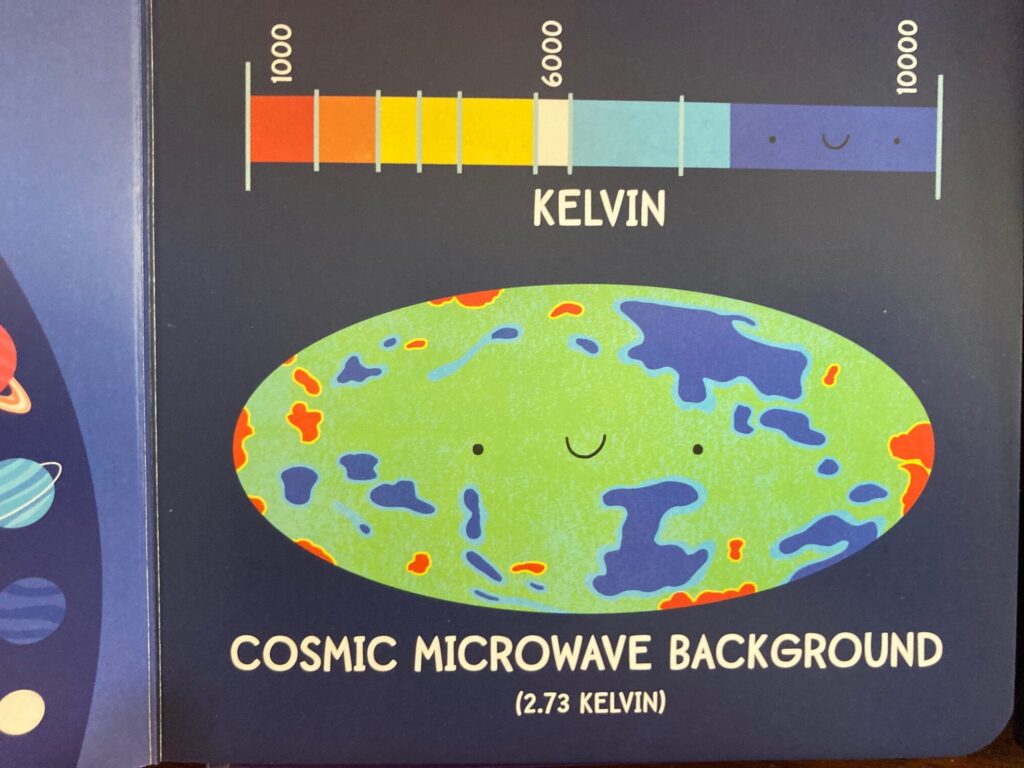
It’s not the deep end of the pool, it’s just the pool. Young children are much smarter than we think they are and able to comprehend much more than they’re provided access to. Will every child be a nuclear physicist? No, but allowing vehicles like this that introduce advanced material at a very introductory level will make it easier for kids to accomplish more.
By the time most kids get to the third grade they’ve already been submitted to groupthink that science and math are bad. Most of the class might groan or whine when science or math starts. That way they receive cover when their grades might not measure up. They also look like they’re in league with the class clown or those that have received the wrong kind of attention.
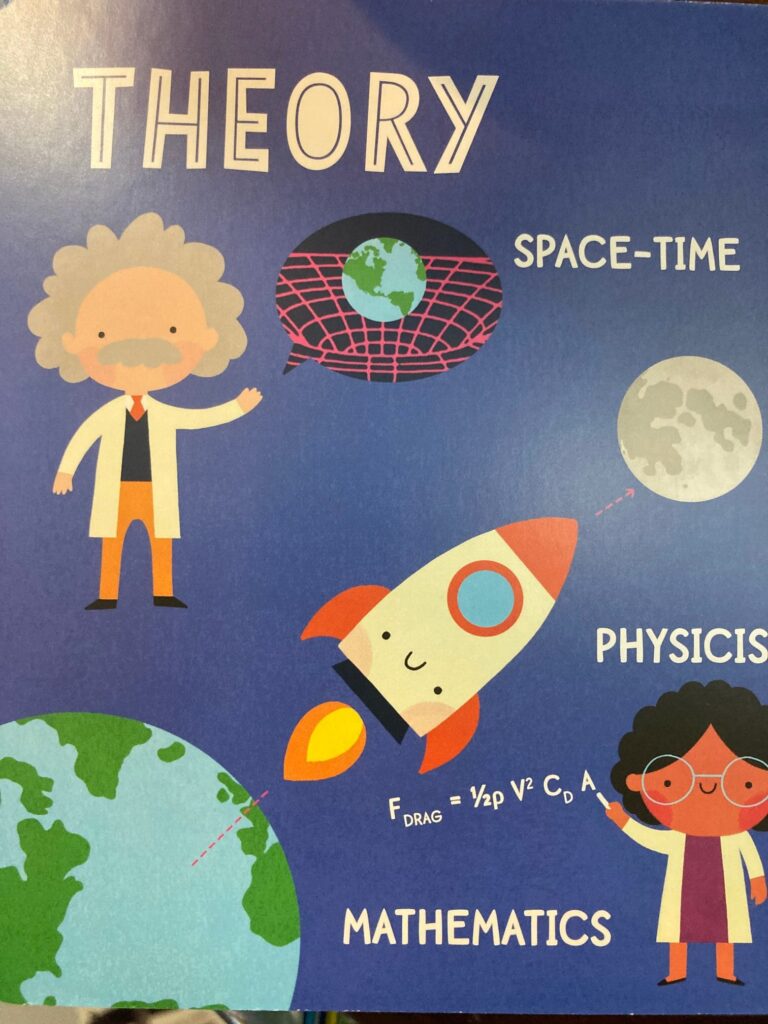
When this happens I let them know that science and math are great because they are always correct. Some wise-acre kid in the class might ask ‘then why don’t I get 100% on the test?”. I politely tell them that the math or science always comes out correct, if the equation and the process behind it are true. If you got the wrong answer, then it was you that was wrong, and not the math.
It’s not a sick burn, it’s a way to say that the math or science is not changing; it’s just that the student needs more practice with it. My First 100 Space Words is awesome. It’s a simple book that can lead to complex questions, but that is ok. It’ll introduce those words to young minds and the fun will be to see where those words or concepts take them.
My First 100 Space Words is by Chris Ferrie with pictures by Lindsay Dale-Scott and available on Sourcebooks.
There are affiliate links in this post.
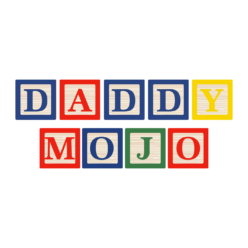
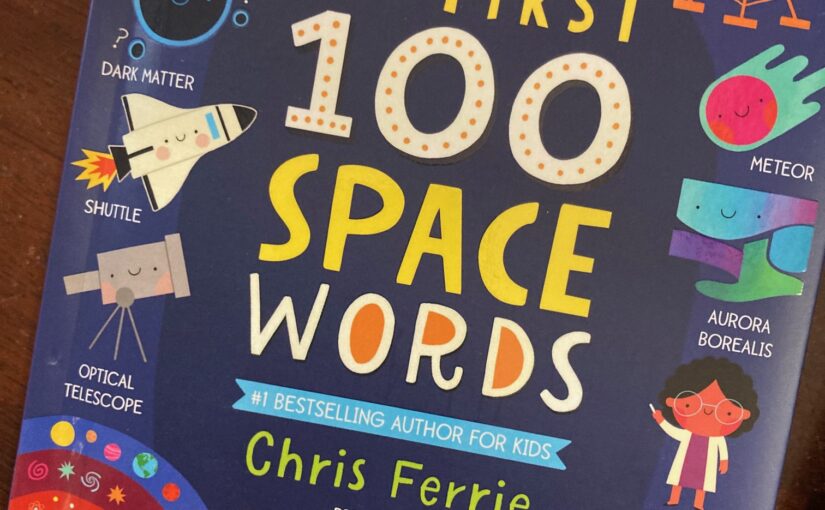



 Facebook
Facebook Twitter
Twitter Flickr
Flickr GooglePlus
GooglePlus Youtube
Youtube